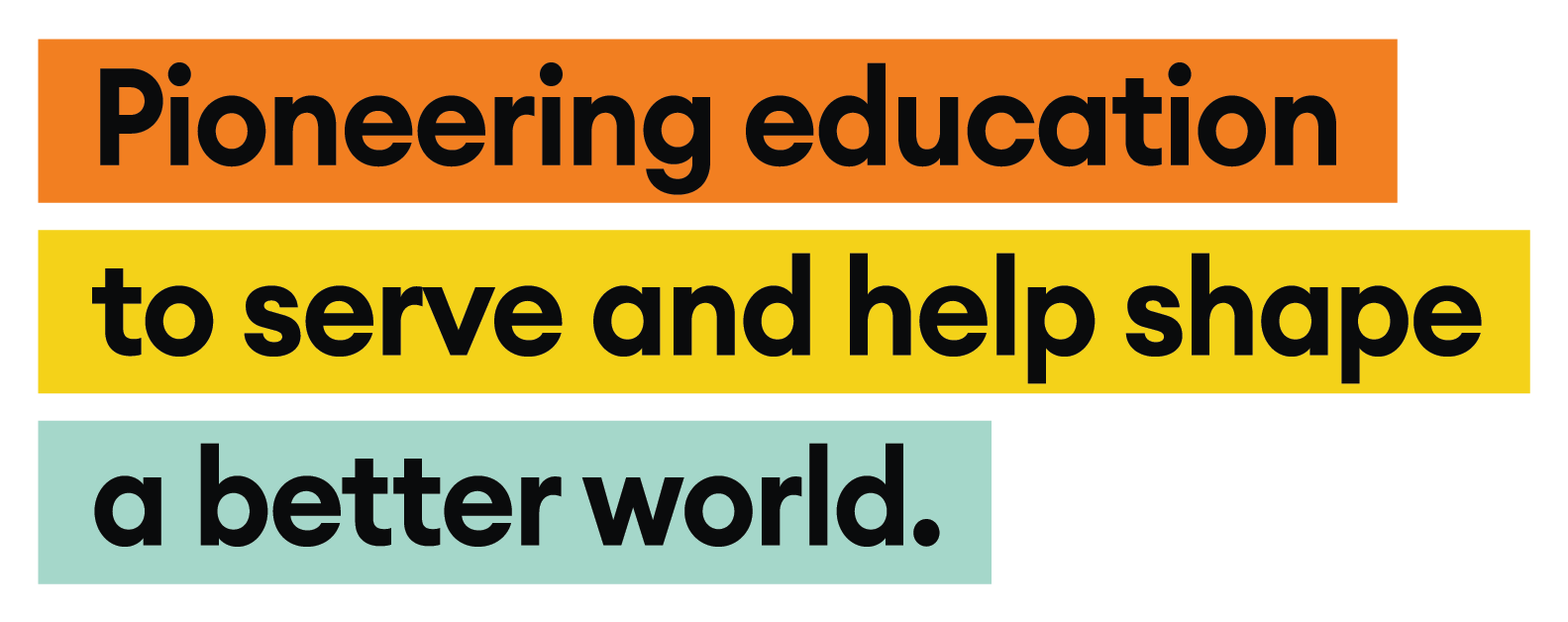Meet the English Department | Part 2
08 Jan 2020
In Part 1 we heard teachers in the English department share their thoughts on life, literature, language and a love of words in all their different forms. Part 2 picks up where we left off, by asking the other half of the department what their great literary loves and influences are, as well as their ongoing projects that are in the works.
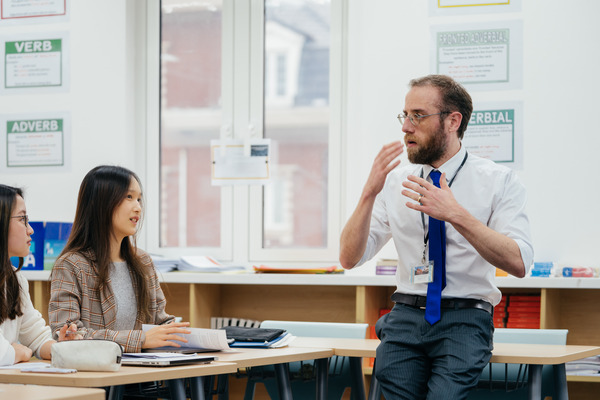 Can you name an author who has influenced you as a teacher, or has generally inspired you to explore and teach English?
Ms Edwards: I remember studying Robert Swindells’ Daz 4 Zoe back in year 9 and I remember it being the first novel I read that made me think of a book as a linguistic construction. I genuinely think it was the book, and he was the author, that switched me on to English and fostered a passion to explore it more deeply and then go another step beyond by teaching it.
Mr Hardy: Cormack McCarthy is a great influence because the way he writes is so powerful and succinct. I can lean into that as a teacher with creative writing or to simply enjoy it as a reader. Stephen Fry’s is another because his prose is so wittily constructed, yet his poetry is also sublime. His Ode Less Travelled is an amazing primer on poetry, as it keeps in all the fun and enjoyment of the process.
Ms North: The social commentary of Charles Dickens makes him relevant and a great read. I’m always reading widely so I can gain new perspectives and I want my pupils to consider how writers can do so much more than just entertain us.
Mr Vaughan: Growing up, English was my only real strength in school so I found that I naturally wanted to pursue a career that allowed me to immerse myself in literature thanks to a long, long list of fantastic authors who really spoke to me. For example, Philip Pullman helps me empathise with pupils because it reminds me of the inherent challenges of being that age. But there are dozens more I could name.
Can you name an author who has influenced you as a teacher, or has generally inspired you to explore and teach English?
Ms Edwards: I remember studying Robert Swindells’ Daz 4 Zoe back in year 9 and I remember it being the first novel I read that made me think of a book as a linguistic construction. I genuinely think it was the book, and he was the author, that switched me on to English and fostered a passion to explore it more deeply and then go another step beyond by teaching it.
Mr Hardy: Cormack McCarthy is a great influence because the way he writes is so powerful and succinct. I can lean into that as a teacher with creative writing or to simply enjoy it as a reader. Stephen Fry’s is another because his prose is so wittily constructed, yet his poetry is also sublime. His Ode Less Travelled is an amazing primer on poetry, as it keeps in all the fun and enjoyment of the process.
Ms North: The social commentary of Charles Dickens makes him relevant and a great read. I’m always reading widely so I can gain new perspectives and I want my pupils to consider how writers can do so much more than just entertain us.
Mr Vaughan: Growing up, English was my only real strength in school so I found that I naturally wanted to pursue a career that allowed me to immerse myself in literature thanks to a long, long list of fantastic authors who really spoke to me. For example, Philip Pullman helps me empathise with pupils because it reminds me of the inherent challenges of being that age. But there are dozens more I could name.
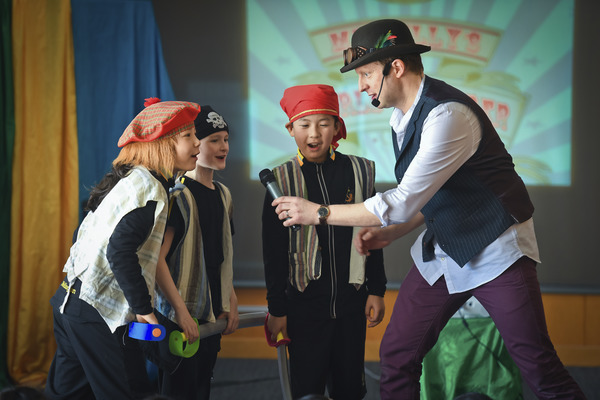 What are you reading right now for pleasure?
Ms Edwards: I have a couple of books on the go right now, which is something I don’t usually do! I’m really enjoying The Ask and the Answer by Patrick Ness, as well as And the Mountains Echoed by Khaled Hosseini. I love taking on recommendations from people whose literary tastes I admire, but there’s never enough time for all of them!
Mr Hardy: Well I’m reading Snail and the Whale for my son, Leon, because he loves it! Parenthood has definitely helped me get into my children’s literature. For myself, I’ve just started on The Sympathizer by Viet Thanh Nguyen. It’s an amazing portrayal of the torn loyalties of the Vietnam War.
Ms North: At the moment I’m reading Red Sorghum by Mo Yan. I really enjoy reading literature that gives me an insight into a culture different from my own and had previously never read anything by a Chinese author. It seems irreverent not to read something by a writer of a country that you’re living in.
Mr Vaughan: I’m giving War and Peace by Leo Tolstoy a go, and I’m half-way through it. I’ve taught history as well as English and right now I’m very into Napoleonic history as well as Russian literature, so I felt it was time to try a classic novel which caters to both of those things. I love how it’s historically grounded yet at the same time such an evocative and human story.
What are you reading right now for pleasure?
Ms Edwards: I have a couple of books on the go right now, which is something I don’t usually do! I’m really enjoying The Ask and the Answer by Patrick Ness, as well as And the Mountains Echoed by Khaled Hosseini. I love taking on recommendations from people whose literary tastes I admire, but there’s never enough time for all of them!
Mr Hardy: Well I’m reading Snail and the Whale for my son, Leon, because he loves it! Parenthood has definitely helped me get into my children’s literature. For myself, I’ve just started on The Sympathizer by Viet Thanh Nguyen. It’s an amazing portrayal of the torn loyalties of the Vietnam War.
Ms North: At the moment I’m reading Red Sorghum by Mo Yan. I really enjoy reading literature that gives me an insight into a culture different from my own and had previously never read anything by a Chinese author. It seems irreverent not to read something by a writer of a country that you’re living in.
Mr Vaughan: I’m giving War and Peace by Leo Tolstoy a go, and I’m half-way through it. I’ve taught history as well as English and right now I’m very into Napoleonic history as well as Russian literature, so I felt it was time to try a classic novel which caters to both of those things. I love how it’s historically grounded yet at the same time such an evocative and human story.
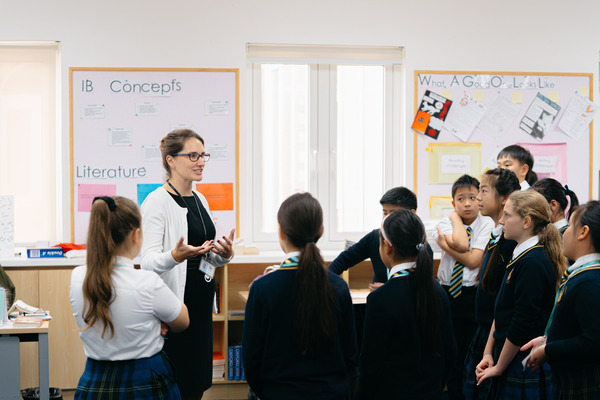 Why do you feel it’s important for everyone to have a love of literature and language?
Ms Edwards: What are we without language? The ability to understand and participate in the discussion of complex concepts, to express yourself with confidence and precision, is at the foundation of our subject. English is more than books, language and literature is more than words, it’s about unlocking pretty much every mystery that surrounds us. It allows us to understand the world and each other – writing something down and having someone else read it is probably the closest thing we’ll ever have to telepathy. In short, language makes us better people.
Mr Hardy: It enriches life, it’s as simple as that. In all aspects of life, in the highs, lows, the known and unknown, literature and language have a part to play in helping you understand what’s happening.
Ms North: It’s so connected to our everyday lives. Literature gives us so many different perspectives into the lives of others. For me, I think that was borne out early in my life from listening to my grandparents and their friends tell me stories of their lives; lives I could never experience but whose reality was still almost tangible because of the way they spoke about them.
Mr Vaughan: We need language to interact with one another on any meaningful level, and we always will. No matter what you want to do with your life, if you want to be successful you have to get to grips with language by exploring it, and to explore language you have to explore literature. While you can’t force someone to love something, I think that all pupils love language whether they realise it or not. You can’t enjoy film, or theatre, or comic books, or any creative literary work without loving language on some level.
Why do you feel it’s important for everyone to have a love of literature and language?
Ms Edwards: What are we without language? The ability to understand and participate in the discussion of complex concepts, to express yourself with confidence and precision, is at the foundation of our subject. English is more than books, language and literature is more than words, it’s about unlocking pretty much every mystery that surrounds us. It allows us to understand the world and each other – writing something down and having someone else read it is probably the closest thing we’ll ever have to telepathy. In short, language makes us better people.
Mr Hardy: It enriches life, it’s as simple as that. In all aspects of life, in the highs, lows, the known and unknown, literature and language have a part to play in helping you understand what’s happening.
Ms North: It’s so connected to our everyday lives. Literature gives us so many different perspectives into the lives of others. For me, I think that was borne out early in my life from listening to my grandparents and their friends tell me stories of their lives; lives I could never experience but whose reality was still almost tangible because of the way they spoke about them.
Mr Vaughan: We need language to interact with one another on any meaningful level, and we always will. No matter what you want to do with your life, if you want to be successful you have to get to grips with language by exploring it, and to explore language you have to explore literature. While you can’t force someone to love something, I think that all pupils love language whether they realise it or not. You can’t enjoy film, or theatre, or comic books, or any creative literary work without loving language on some level.
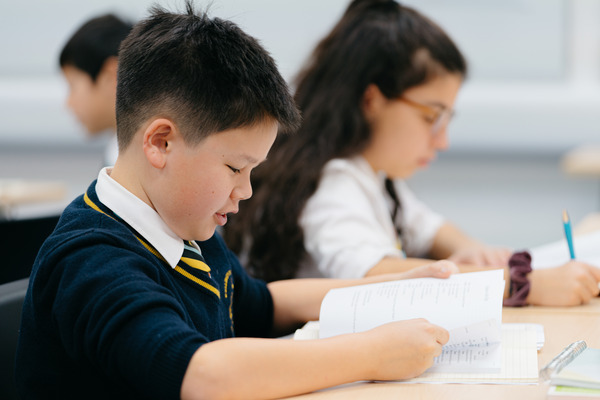 What is it that you really love about teaching English? Why do you choose to do it?
Ms Edwards: I love the curiosity of my pupils, they are so eager to ask questions and explore, but they marry that curiosity to a growing intelligence that allows them to make highly insightful comments and observations, and they’re not afraid to make mistakes! They are investigating their world, and I love seeing their responses when something important falls into place for them.
Mr Hardy: When my pupils really tap into something they enjoy, there’s no better feeling. I love showing them new ideas, new ways of thinking, and giving them the means to express themselves more clearly and authentically.
Ms North: Teaching English allows me to get to know pupils in a way that certain other subjects don’t. I love seeing the moment when a text (of any kind) makes an emotional connection with my pupils. It’s an absolute joy to hear them arguing over the motivations of a character or the choices of an author, because it makes them question their own world a little bit more than they did when they came into the lesson.
Mr Vaughan: No two days are the same, ever. Every pupil is different so every time I teach a text, even one I’ve taught many times before, I always get something new and satisfying out of it. Every time I get to look at each text through a new lens and it just keeps my job so fresh and genuinely exciting. It’s never boring – that’s the short answer!
What is it that you really love about teaching English? Why do you choose to do it?
Ms Edwards: I love the curiosity of my pupils, they are so eager to ask questions and explore, but they marry that curiosity to a growing intelligence that allows them to make highly insightful comments and observations, and they’re not afraid to make mistakes! They are investigating their world, and I love seeing their responses when something important falls into place for them.
Mr Hardy: When my pupils really tap into something they enjoy, there’s no better feeling. I love showing them new ideas, new ways of thinking, and giving them the means to express themselves more clearly and authentically.
Ms North: Teaching English allows me to get to know pupils in a way that certain other subjects don’t. I love seeing the moment when a text (of any kind) makes an emotional connection with my pupils. It’s an absolute joy to hear them arguing over the motivations of a character or the choices of an author, because it makes them question their own world a little bit more than they did when they came into the lesson.
Mr Vaughan: No two days are the same, ever. Every pupil is different so every time I teach a text, even one I’ve taught many times before, I always get something new and satisfying out of it. Every time I get to look at each text through a new lens and it just keeps my job so fresh and genuinely exciting. It’s never boring – that’s the short answer!
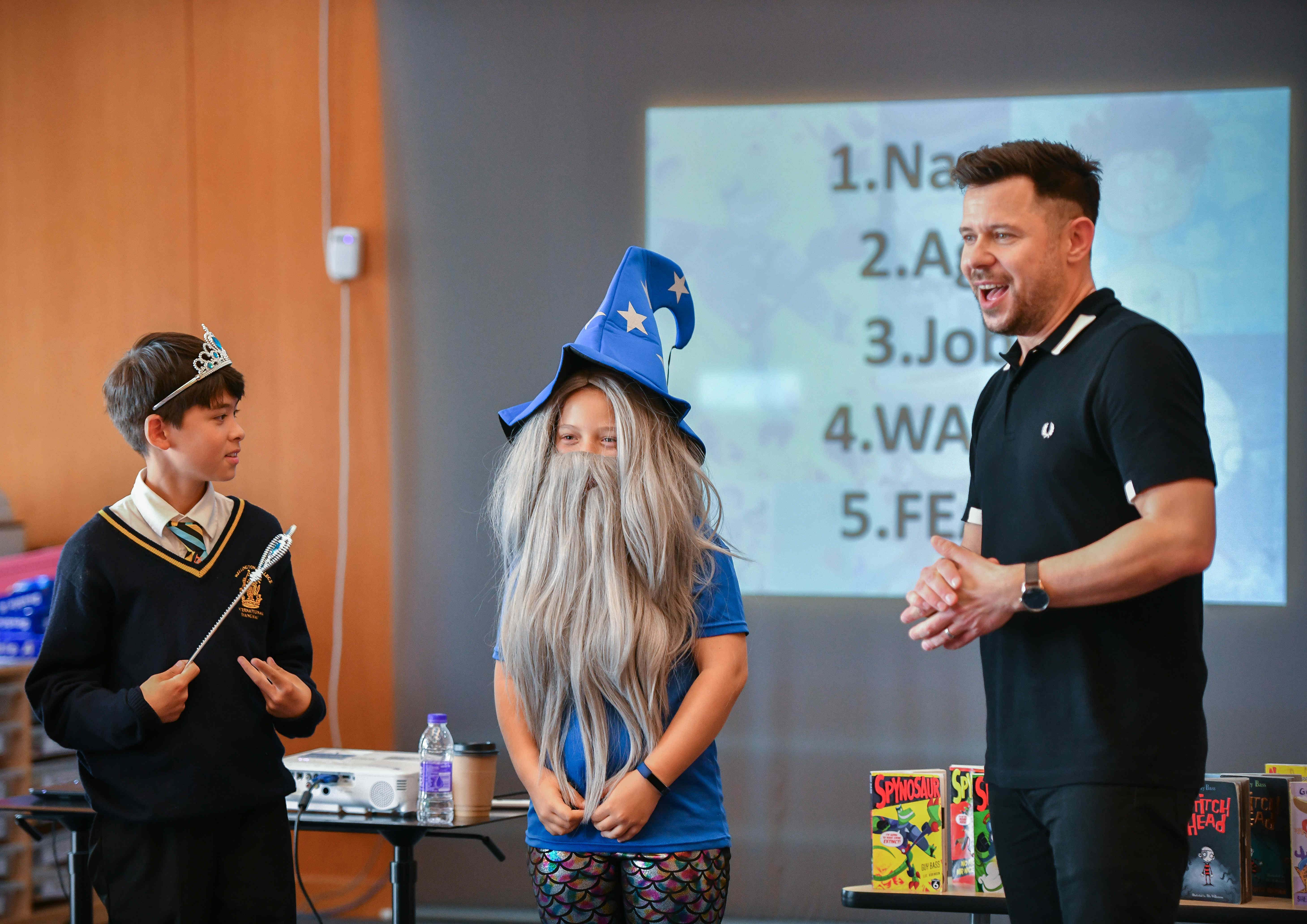 Can you highlight an English activity that you’ve led outside of general classes that your pupils really responded to?
Ms Edwards: Last year I very much enjoyed running the poetry club and I think the blackout poetry (take a text and make a poem by purposefully ‘blacking out’ parts of it) was an absolute triumph. The pupils came up with some amazing stuff, some of it very avant-garde!
Mr Hardy: I did a 48-hour film festival with pupils here at Wellington, that was a blast for everyone. They got their briefing on Friday, shot the films on Saturday, edited on Sunday and had an actual film to show for it after one intense weekend. It showed them just how easy it is to create a story when your mind is focused on it. On the flipside, it also showed them the importance of craft and the effort needed to hone an idea into something special.
Ms North: I have previously been involved in the Hong Kong Young Writers Award which is a creative writing competition in Asia. Pupils learned how to perfect their craft and to consider how different choices of language or structure could impact their writing to the extent where it would or wouldn’t be published. That level of self-awareness in their writing gave them a lot of satisfaction.
Mr Vaughan: I led a drama society in my previous school, where pupils reinterpreted texts as a dramatic piece, and it led to so many opportunities for pretty wild creativity but still grounded in literary analysis. I loved seeing them experiment and approach texts in a totally original manner.
Can you highlight an English activity that you’ve led outside of general classes that your pupils really responded to?
Ms Edwards: Last year I very much enjoyed running the poetry club and I think the blackout poetry (take a text and make a poem by purposefully ‘blacking out’ parts of it) was an absolute triumph. The pupils came up with some amazing stuff, some of it very avant-garde!
Mr Hardy: I did a 48-hour film festival with pupils here at Wellington, that was a blast for everyone. They got their briefing on Friday, shot the films on Saturday, edited on Sunday and had an actual film to show for it after one intense weekend. It showed them just how easy it is to create a story when your mind is focused on it. On the flipside, it also showed them the importance of craft and the effort needed to hone an idea into something special.
Ms North: I have previously been involved in the Hong Kong Young Writers Award which is a creative writing competition in Asia. Pupils learned how to perfect their craft and to consider how different choices of language or structure could impact their writing to the extent where it would or wouldn’t be published. That level of self-awareness in their writing gave them a lot of satisfaction.
Mr Vaughan: I led a drama society in my previous school, where pupils reinterpreted texts as a dramatic piece, and it led to so many opportunities for pretty wild creativity but still grounded in literary analysis. I loved seeing them experiment and approach texts in a totally original manner.
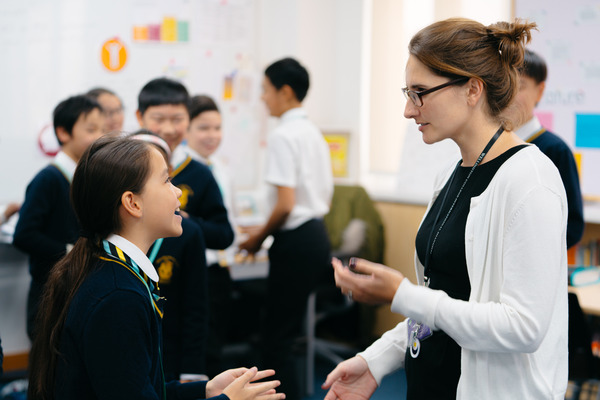 Is there anything you’re doing this year at Wellington that you’re particularly excited about? Do you have any passion projects in the works?
Ms Edwards: This year I’m co-running debate club, and it’s early days but the level of interest is already very high indeed. The first scheduled debate will focus on nuclear energy and I’m very keen to see what the pupils can produce for their opening clash of wits and persuasive abilities.
Mr Hardy: Right now I’m running a creative writing group for Upper Prep School, and we’ve already had two anthologies out – they’re in the library for anyone to go and read. They’ve shown wonderful range and I’m hoping to expand the group in the future, maybe with parents coming in for readings.
Mr Vaughan: I’m hoping to set up a book club that allows pupils to enjoy discussing any texts they like in a more relaxed, low-pressure environment. What we do in the classroom is of course essential but sometimes it’s nice to be able to just have a chat about books you enjoyed, purely for its own sake rather than for honing your literary skills in any kind of deliberate manner.
We hope you enjoyed our two-part series of interviews with the English department and are looking forward to seeing some of the many creative projects and activities that they the English department is leading throughout the rest of the academic year.
More relevant articles :
Is there anything you’re doing this year at Wellington that you’re particularly excited about? Do you have any passion projects in the works?
Ms Edwards: This year I’m co-running debate club, and it’s early days but the level of interest is already very high indeed. The first scheduled debate will focus on nuclear energy and I’m very keen to see what the pupils can produce for their opening clash of wits and persuasive abilities.
Mr Hardy: Right now I’m running a creative writing group for Upper Prep School, and we’ve already had two anthologies out – they’re in the library for anyone to go and read. They’ve shown wonderful range and I’m hoping to expand the group in the future, maybe with parents coming in for readings.
Mr Vaughan: I’m hoping to set up a book club that allows pupils to enjoy discussing any texts they like in a more relaxed, low-pressure environment. What we do in the classroom is of course essential but sometimes it’s nice to be able to just have a chat about books you enjoyed, purely for its own sake rather than for honing your literary skills in any kind of deliberate manner.
We hope you enjoyed our two-part series of interviews with the English department and are looking forward to seeing some of the many creative projects and activities that they the English department is leading throughout the rest of the academic year.
More relevant articles :
 Can you name an author who has influenced you as a teacher, or has generally inspired you to explore and teach English?
Ms Edwards: I remember studying Robert Swindells’ Daz 4 Zoe back in year 9 and I remember it being the first novel I read that made me think of a book as a linguistic construction. I genuinely think it was the book, and he was the author, that switched me on to English and fostered a passion to explore it more deeply and then go another step beyond by teaching it.
Mr Hardy: Cormack McCarthy is a great influence because the way he writes is so powerful and succinct. I can lean into that as a teacher with creative writing or to simply enjoy it as a reader. Stephen Fry’s is another because his prose is so wittily constructed, yet his poetry is also sublime. His Ode Less Travelled is an amazing primer on poetry, as it keeps in all the fun and enjoyment of the process.
Ms North: The social commentary of Charles Dickens makes him relevant and a great read. I’m always reading widely so I can gain new perspectives and I want my pupils to consider how writers can do so much more than just entertain us.
Mr Vaughan: Growing up, English was my only real strength in school so I found that I naturally wanted to pursue a career that allowed me to immerse myself in literature thanks to a long, long list of fantastic authors who really spoke to me. For example, Philip Pullman helps me empathise with pupils because it reminds me of the inherent challenges of being that age. But there are dozens more I could name.
Can you name an author who has influenced you as a teacher, or has generally inspired you to explore and teach English?
Ms Edwards: I remember studying Robert Swindells’ Daz 4 Zoe back in year 9 and I remember it being the first novel I read that made me think of a book as a linguistic construction. I genuinely think it was the book, and he was the author, that switched me on to English and fostered a passion to explore it more deeply and then go another step beyond by teaching it.
Mr Hardy: Cormack McCarthy is a great influence because the way he writes is so powerful and succinct. I can lean into that as a teacher with creative writing or to simply enjoy it as a reader. Stephen Fry’s is another because his prose is so wittily constructed, yet his poetry is also sublime. His Ode Less Travelled is an amazing primer on poetry, as it keeps in all the fun and enjoyment of the process.
Ms North: The social commentary of Charles Dickens makes him relevant and a great read. I’m always reading widely so I can gain new perspectives and I want my pupils to consider how writers can do so much more than just entertain us.
Mr Vaughan: Growing up, English was my only real strength in school so I found that I naturally wanted to pursue a career that allowed me to immerse myself in literature thanks to a long, long list of fantastic authors who really spoke to me. For example, Philip Pullman helps me empathise with pupils because it reminds me of the inherent challenges of being that age. But there are dozens more I could name.
 What are you reading right now for pleasure?
Ms Edwards: I have a couple of books on the go right now, which is something I don’t usually do! I’m really enjoying The Ask and the Answer by Patrick Ness, as well as And the Mountains Echoed by Khaled Hosseini. I love taking on recommendations from people whose literary tastes I admire, but there’s never enough time for all of them!
Mr Hardy: Well I’m reading Snail and the Whale for my son, Leon, because he loves it! Parenthood has definitely helped me get into my children’s literature. For myself, I’ve just started on The Sympathizer by Viet Thanh Nguyen. It’s an amazing portrayal of the torn loyalties of the Vietnam War.
Ms North: At the moment I’m reading Red Sorghum by Mo Yan. I really enjoy reading literature that gives me an insight into a culture different from my own and had previously never read anything by a Chinese author. It seems irreverent not to read something by a writer of a country that you’re living in.
Mr Vaughan: I’m giving War and Peace by Leo Tolstoy a go, and I’m half-way through it. I’ve taught history as well as English and right now I’m very into Napoleonic history as well as Russian literature, so I felt it was time to try a classic novel which caters to both of those things. I love how it’s historically grounded yet at the same time such an evocative and human story.
What are you reading right now for pleasure?
Ms Edwards: I have a couple of books on the go right now, which is something I don’t usually do! I’m really enjoying The Ask and the Answer by Patrick Ness, as well as And the Mountains Echoed by Khaled Hosseini. I love taking on recommendations from people whose literary tastes I admire, but there’s never enough time for all of them!
Mr Hardy: Well I’m reading Snail and the Whale for my son, Leon, because he loves it! Parenthood has definitely helped me get into my children’s literature. For myself, I’ve just started on The Sympathizer by Viet Thanh Nguyen. It’s an amazing portrayal of the torn loyalties of the Vietnam War.
Ms North: At the moment I’m reading Red Sorghum by Mo Yan. I really enjoy reading literature that gives me an insight into a culture different from my own and had previously never read anything by a Chinese author. It seems irreverent not to read something by a writer of a country that you’re living in.
Mr Vaughan: I’m giving War and Peace by Leo Tolstoy a go, and I’m half-way through it. I’ve taught history as well as English and right now I’m very into Napoleonic history as well as Russian literature, so I felt it was time to try a classic novel which caters to both of those things. I love how it’s historically grounded yet at the same time such an evocative and human story.
 Why do you feel it’s important for everyone to have a love of literature and language?
Ms Edwards: What are we without language? The ability to understand and participate in the discussion of complex concepts, to express yourself with confidence and precision, is at the foundation of our subject. English is more than books, language and literature is more than words, it’s about unlocking pretty much every mystery that surrounds us. It allows us to understand the world and each other – writing something down and having someone else read it is probably the closest thing we’ll ever have to telepathy. In short, language makes us better people.
Mr Hardy: It enriches life, it’s as simple as that. In all aspects of life, in the highs, lows, the known and unknown, literature and language have a part to play in helping you understand what’s happening.
Ms North: It’s so connected to our everyday lives. Literature gives us so many different perspectives into the lives of others. For me, I think that was borne out early in my life from listening to my grandparents and their friends tell me stories of their lives; lives I could never experience but whose reality was still almost tangible because of the way they spoke about them.
Mr Vaughan: We need language to interact with one another on any meaningful level, and we always will. No matter what you want to do with your life, if you want to be successful you have to get to grips with language by exploring it, and to explore language you have to explore literature. While you can’t force someone to love something, I think that all pupils love language whether they realise it or not. You can’t enjoy film, or theatre, or comic books, or any creative literary work without loving language on some level.
Why do you feel it’s important for everyone to have a love of literature and language?
Ms Edwards: What are we without language? The ability to understand and participate in the discussion of complex concepts, to express yourself with confidence and precision, is at the foundation of our subject. English is more than books, language and literature is more than words, it’s about unlocking pretty much every mystery that surrounds us. It allows us to understand the world and each other – writing something down and having someone else read it is probably the closest thing we’ll ever have to telepathy. In short, language makes us better people.
Mr Hardy: It enriches life, it’s as simple as that. In all aspects of life, in the highs, lows, the known and unknown, literature and language have a part to play in helping you understand what’s happening.
Ms North: It’s so connected to our everyday lives. Literature gives us so many different perspectives into the lives of others. For me, I think that was borne out early in my life from listening to my grandparents and their friends tell me stories of their lives; lives I could never experience but whose reality was still almost tangible because of the way they spoke about them.
Mr Vaughan: We need language to interact with one another on any meaningful level, and we always will. No matter what you want to do with your life, if you want to be successful you have to get to grips with language by exploring it, and to explore language you have to explore literature. While you can’t force someone to love something, I think that all pupils love language whether they realise it or not. You can’t enjoy film, or theatre, or comic books, or any creative literary work without loving language on some level.
 What is it that you really love about teaching English? Why do you choose to do it?
Ms Edwards: I love the curiosity of my pupils, they are so eager to ask questions and explore, but they marry that curiosity to a growing intelligence that allows them to make highly insightful comments and observations, and they’re not afraid to make mistakes! They are investigating their world, and I love seeing their responses when something important falls into place for them.
Mr Hardy: When my pupils really tap into something they enjoy, there’s no better feeling. I love showing them new ideas, new ways of thinking, and giving them the means to express themselves more clearly and authentically.
Ms North: Teaching English allows me to get to know pupils in a way that certain other subjects don’t. I love seeing the moment when a text (of any kind) makes an emotional connection with my pupils. It’s an absolute joy to hear them arguing over the motivations of a character or the choices of an author, because it makes them question their own world a little bit more than they did when they came into the lesson.
Mr Vaughan: No two days are the same, ever. Every pupil is different so every time I teach a text, even one I’ve taught many times before, I always get something new and satisfying out of it. Every time I get to look at each text through a new lens and it just keeps my job so fresh and genuinely exciting. It’s never boring – that’s the short answer!
What is it that you really love about teaching English? Why do you choose to do it?
Ms Edwards: I love the curiosity of my pupils, they are so eager to ask questions and explore, but they marry that curiosity to a growing intelligence that allows them to make highly insightful comments and observations, and they’re not afraid to make mistakes! They are investigating their world, and I love seeing their responses when something important falls into place for them.
Mr Hardy: When my pupils really tap into something they enjoy, there’s no better feeling. I love showing them new ideas, new ways of thinking, and giving them the means to express themselves more clearly and authentically.
Ms North: Teaching English allows me to get to know pupils in a way that certain other subjects don’t. I love seeing the moment when a text (of any kind) makes an emotional connection with my pupils. It’s an absolute joy to hear them arguing over the motivations of a character or the choices of an author, because it makes them question their own world a little bit more than they did when they came into the lesson.
Mr Vaughan: No two days are the same, ever. Every pupil is different so every time I teach a text, even one I’ve taught many times before, I always get something new and satisfying out of it. Every time I get to look at each text through a new lens and it just keeps my job so fresh and genuinely exciting. It’s never boring – that’s the short answer!
 Can you highlight an English activity that you’ve led outside of general classes that your pupils really responded to?
Ms Edwards: Last year I very much enjoyed running the poetry club and I think the blackout poetry (take a text and make a poem by purposefully ‘blacking out’ parts of it) was an absolute triumph. The pupils came up with some amazing stuff, some of it very avant-garde!
Mr Hardy: I did a 48-hour film festival with pupils here at Wellington, that was a blast for everyone. They got their briefing on Friday, shot the films on Saturday, edited on Sunday and had an actual film to show for it after one intense weekend. It showed them just how easy it is to create a story when your mind is focused on it. On the flipside, it also showed them the importance of craft and the effort needed to hone an idea into something special.
Ms North: I have previously been involved in the Hong Kong Young Writers Award which is a creative writing competition in Asia. Pupils learned how to perfect their craft and to consider how different choices of language or structure could impact their writing to the extent where it would or wouldn’t be published. That level of self-awareness in their writing gave them a lot of satisfaction.
Mr Vaughan: I led a drama society in my previous school, where pupils reinterpreted texts as a dramatic piece, and it led to so many opportunities for pretty wild creativity but still grounded in literary analysis. I loved seeing them experiment and approach texts in a totally original manner.
Can you highlight an English activity that you’ve led outside of general classes that your pupils really responded to?
Ms Edwards: Last year I very much enjoyed running the poetry club and I think the blackout poetry (take a text and make a poem by purposefully ‘blacking out’ parts of it) was an absolute triumph. The pupils came up with some amazing stuff, some of it very avant-garde!
Mr Hardy: I did a 48-hour film festival with pupils here at Wellington, that was a blast for everyone. They got their briefing on Friday, shot the films on Saturday, edited on Sunday and had an actual film to show for it after one intense weekend. It showed them just how easy it is to create a story when your mind is focused on it. On the flipside, it also showed them the importance of craft and the effort needed to hone an idea into something special.
Ms North: I have previously been involved in the Hong Kong Young Writers Award which is a creative writing competition in Asia. Pupils learned how to perfect their craft and to consider how different choices of language or structure could impact their writing to the extent where it would or wouldn’t be published. That level of self-awareness in their writing gave them a lot of satisfaction.
Mr Vaughan: I led a drama society in my previous school, where pupils reinterpreted texts as a dramatic piece, and it led to so many opportunities for pretty wild creativity but still grounded in literary analysis. I loved seeing them experiment and approach texts in a totally original manner.
 Is there anything you’re doing this year at Wellington that you’re particularly excited about? Do you have any passion projects in the works?
Ms Edwards: This year I’m co-running debate club, and it’s early days but the level of interest is already very high indeed. The first scheduled debate will focus on nuclear energy and I’m very keen to see what the pupils can produce for their opening clash of wits and persuasive abilities.
Mr Hardy: Right now I’m running a creative writing group for Upper Prep School, and we’ve already had two anthologies out – they’re in the library for anyone to go and read. They’ve shown wonderful range and I’m hoping to expand the group in the future, maybe with parents coming in for readings.
Mr Vaughan: I’m hoping to set up a book club that allows pupils to enjoy discussing any texts they like in a more relaxed, low-pressure environment. What we do in the classroom is of course essential but sometimes it’s nice to be able to just have a chat about books you enjoyed, purely for its own sake rather than for honing your literary skills in any kind of deliberate manner.
We hope you enjoyed our two-part series of interviews with the English department and are looking forward to seeing some of the many creative projects and activities that they the English department is leading throughout the rest of the academic year.
More relevant articles :
Is there anything you’re doing this year at Wellington that you’re particularly excited about? Do you have any passion projects in the works?
Ms Edwards: This year I’m co-running debate club, and it’s early days but the level of interest is already very high indeed. The first scheduled debate will focus on nuclear energy and I’m very keen to see what the pupils can produce for their opening clash of wits and persuasive abilities.
Mr Hardy: Right now I’m running a creative writing group for Upper Prep School, and we’ve already had two anthologies out – they’re in the library for anyone to go and read. They’ve shown wonderful range and I’m hoping to expand the group in the future, maybe with parents coming in for readings.
Mr Vaughan: I’m hoping to set up a book club that allows pupils to enjoy discussing any texts they like in a more relaxed, low-pressure environment. What we do in the classroom is of course essential but sometimes it’s nice to be able to just have a chat about books you enjoyed, purely for its own sake rather than for honing your literary skills in any kind of deliberate manner.
We hope you enjoyed our two-part series of interviews with the English department and are looking forward to seeing some of the many creative projects and activities that they the English department is leading throughout the rest of the academic year.
More relevant articles :
Related Articles

Get your tickets to Sleeping Beauty02 Dec 2024
Wellington Shanghai is thrilled to present Sleeping Beauty: The Pantomime. This enchanting play, written by Ben Crocker and adapted by our very own Mr Rob Hicks, stays true to the beloved story of Pr
Read More

Fit for English Literature | Selina, Oxford07 May 2025
A few years ago, if you had asked Selina what she wanted to study at university, her answer would have been physics. Then she began her IB studies. While working on her Extended Essay, she discovered
Read More

Swimmer Shannon earns a spot at the Southeast Asian Games!28 Apr 2025
At the Shanghai Swimming League Championship, Shannon showed what pushing through fatigue and coming back even stronger really looks like! She smashed 2 new SCM (Short Course Meters) Personal Bests i
Read More










